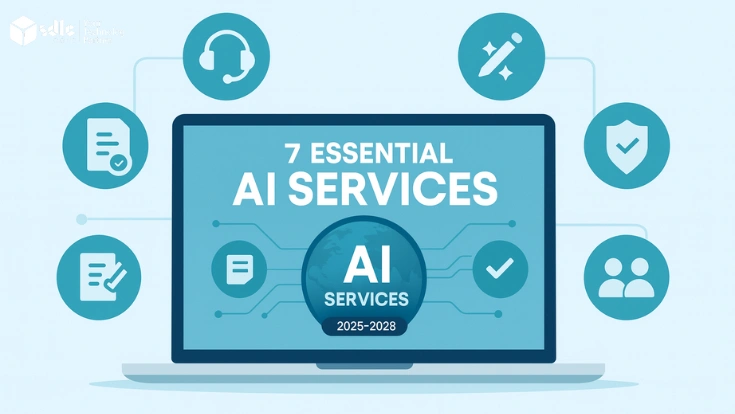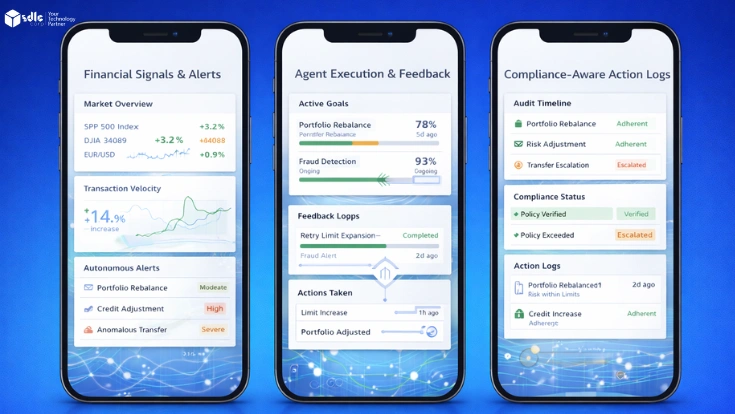Introduction
In recent years, artificial intelligence (AI) has woven itself into nearly every industry, transforming processes, products, and user experiences. The gaming world is no exception, especially within the fantasy genre, where intricate narratives and immersive characters are central to creating compelling experiences. AI is rapidly advancing in its ability to enhance both fantasy game characters and the stories they inhabit, bringing new layers of depth, complexity, and realism to these digital worlds.
In this article, we’ll explore the transformative role of AI in enhancing fantasy game characters and narratives, with a particular focus on the former. From generating life-like non-playable characters (NPCs) to crafting dynamic storylines that adapt to players’ choices, AI’s influence is reshaping how developers design fantasy worlds. This article will break down how AI is applied to character development, the technology’s current and potential capabilities, and how it impacts players’ emotional engagement and game immersion. Additionally, we’ll discuss how leading fantasy game development companies and fantasy game development agencies are utilizing AI in their projects to deliver exceptional experiences.
Boost Your Fantasy Game Efficiency

1. The Evolution of Fantasy Game Characters
Before diving into AI’s impact, it’s important to understand the traditional methods of character development in fantasy games. For many years, game characters were often scripted with pre-defined behaviors, backstories, and dialogues. While these characters could be memorable and emotionally resonant, their interactions with players were limited by rigid programming. This resulted in characters who, though iconic, could feel static after repeated playthroughs.
Fantasy games such as The Elder Scrolls series, World of Warcraft, and Final Fantasy have set the standard for creating captivating characters and worlds. However, these games still relied heavily on human writers, voice actors, and animators to bring characters to life. Today, leading fantasy game development services are integrating AI to enhance these elements, making characters more dynamic and interactive. AI is now introducing a new frontier where characters can not only become more complex but can also evolve based on players’ actions, offering fresh and dynamic interactions with every playthrough.
2. How AI is Revolutionizing Character Development
AI is revolutionizing how characters in fantasy games are designed, developed, and presented. One of the most prominent applications of AI in this area is through procedural generation, which allows for the creation of vast, complex worlds filled with unique characters. But beyond that, AI is also advancing the depth and intelligence of characters in ways that were previously unattainable. Some of the primary ways AI is enhancing fantasy game characters include:
a. Procedural Character Generation
In a traditional game development setting, creating characters especially in a fantasy environment requires considerable time and resources. Designers must craft the physical appearance, behavioral traits, and backstory of each character. AI, however, allows for the procedural generation of characters, which automates much of this process.
Procedural generation enables developers to create a virtually infinite number of characters, each with unique traits and attributes. This is particularly beneficial for fantasy game development companies that need to populate large worlds with diverse, compelling characters. AI-driven algorithms can randomly generate characters’ appearance, dialogue options, and even their role within the game’s story.
For example, No Man’s Sky uses procedural generation to create unique planets and ecosystems. Though it’s more focused on exploration than fantasy, it shows the potential for AI-driven characters in future fantasy games. This technology ensures that every player encounters a unique set of characters, adding replay value and deepening immersion. Several fantasy game development agencies are exploring how to integrate procedural generation into their own projects to enhance the depth of characters.
b. AI Architecture Behind Character Behaviour and Dialogue
AI-driven characters combine decision trees, state machines, and language models. These systems are often built using structured AI development services to ensure narrative consistency, predictable performance, and cross-platform compatibility.
c. AI and Dynamic Character Personalization
AI has the potential to enable dynamic character personalization, tailoring characters to a player’s preferences and playing style. By analyzing player behavior, AI can tweak character personalities, speech patterns, and appearance to create characters that resonate more deeply with individual players. Many fantasy game developers are leveraging AI technologies to create more personalized and reactive NPCs, allowing players to connect with characters in new, emotionally engaging ways.
For instance, a fantasy RPG might have a companion character whose behavior evolves based on how the player interacts with them. If the player consistently chooses aggressive dialogue options, the companion might become more combative or defensive in their own responses. Conversely, if the player approaches situations diplomatically, the companion might adopt a more measured and empathetic tone.
Such AI-driven personalization creates a deeper bond between players and their characters, as they feel that the characters are truly responding to them in meaningful ways. It also provides players with a sense of agency, knowing that their decisions shape not only the world but the characters themselves. Fantasy game development services are increasingly incorporating these dynamic personalization models to enhance the overall player experience.
For implementation, our enterprise AI development company can help you operationalize the strategies and use cases discussed in this article.

3. AI in Worldbuilding and Narrative Creation
AI is not just enhancing individual characters but also the overarching narratives that define fantasy worlds. Fantasy game narratives are intricate, often involving multiple factions, kingdoms, and plotlines that intersect. Traditionally, these stories have been hand-written by writers who craft fixed plot points and dialogue trees. AI is beginning to change this process, allowing for dynamic, branching narratives that evolve based on player decisions.
a. Dynamic Plot Generation
AI can generate dynamic plots that shift and change in response to player actions. This means that every playthrough of a game could offer a different experience, depending on the choices players make. AI can track players’ decisions and adjust the plot accordingly, making the world feel more alive and responsive.
For example, in a fantasy setting, a player’s decision to ally with one faction over another could result in entirely different storylines. AI could ensure that this decision has ripple effects throughout the game, altering not just the immediate plot but also the fates of secondary characters, the availability of certain quests, and the political landscape of the world. This ability to adapt and evolve narratives is what makes AI such a powerful tool for fantasy game development agencies.
b. AI in Dialogue Systems
Natural language processing (NLP) is a subset of AI that’s becoming increasingly important in gaming. Fantasy games often feature lengthy dialogue trees, with characters offering various responses based on the player’s actions. Traditionally, these dialogues are scripted by writers and then locked into the game. AI, however, can make these conversations much more dynamic.
Using NLP, AI can generate on-the-fly dialogue that feels organic and reactive. This means that instead of choosing between three pre-scripted responses, players could engage in more open-ended conversations with NPCs. AI-driven dialogue systems allow NPCs to offer unique responses based on a wide range of player inputs, adding a new layer of realism to the game.
One future possibility is the creation of AI systems capable of responding to players’ spoken or typed dialogue in real time. This could revolutionize how players interact with characters, offering a more immersive and personal narrative experience. Fantasy game development companies that specialize in game development services are already exploring how this AI technology can push the boundaries of interactive storytelling.

4. AI and Character Voice Synthesis
One of the most exciting applications of AI in character development is voice synthesis. In traditional game development, recording dialogue for NPCs is a labor-intensive process that involves voice actors reading from pre-written scripts. With AI, however, developers can now generate character voices using deep learning models.
AI-driven voice synthesis allows for greater flexibility in character dialogue. Characters no longer need to be limited by pre-recorded lines, as AI can generate speech in real time. This not only makes conversations more fluid and natural but also opens up possibilities for procedurally generated dialogue that still feels personalized and emotive.
For example, if an AI-generated character were to receive new information during a game, the system could dynamically synthesize a response using the character’s voice, without the need for human input. This technology is already being applied in some forms, such as in The Elder Scrolls V: Skyrim modding community, where AI-generated voice lines are used to create new NPC dialogues.
5. Challenges and Ethical Considerations
While the potential of AI in enhancing fantasy game characters and narratives is vast, there are also challenges and ethical concerns that must be addressed. One key concern is the over-reliance on AI-generated content. While AI can help create more dynamic and immersive experiences, it’s essential to ensure that human creativity remains at the heart of game development.
There are also ethical concerns surrounding data privacy and the use of AI in monitoring player behavior. If AI is constantly analyzing players’ choices and personalizing characters based on this data, it’s crucial that developers handle this information responsibly, ensuring that players’ privacy is respected.
Additionally, as AI becomes more advanced, there’s the potential for characters to become so lifelike that the lines between reality and fiction blur. Developers must carefully consider how they use AI to create characters that feel emotionally real, ensuring that players understand the difference between the virtual and the real world. Several fantasy game development services are actively addressing these concerns as they adopt AI into their workflows.
For implementation, our AI consulting company can help you operationalize the strategies and use cases discussed in this article.

Conclusion
AI is transforming the world of fantasy games by enhancing character development and narratives in ways that were once unimaginable. Through procedural generation, dynamic behavior models, emotional intelligence, and personalized interactions, AI is enabling characters to become more lifelike, responsive, and emotionally engaging.
The future of fantasy game characters lies at the intersection of human creativity and AI-driven innovation. As developers continue to explore the possibilities of AI, players can look forward to more immersive, dynamic, and emotionally resonant experiences that blur the lines between fiction and reality. fantasy game development companies, fantasy game development agencies, and fantasy game developers will play a crucial role in shaping the future of interactive, AI-driven experiences.



